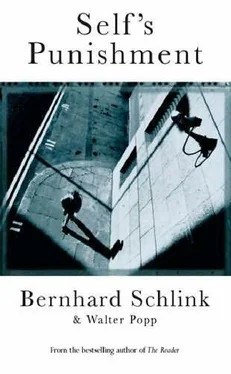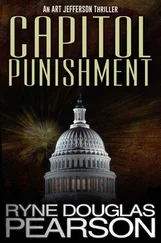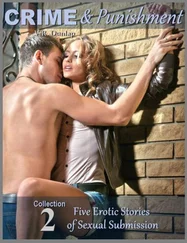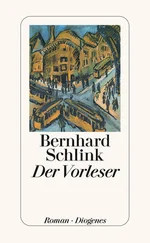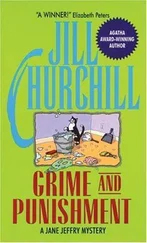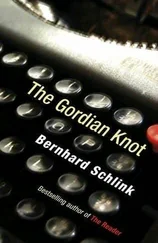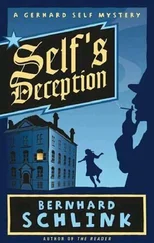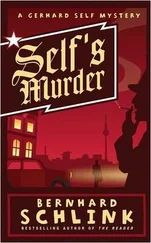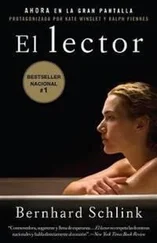7 What exactly are you investigating now?
At eight I awoke, but I didn’t manage to get up. It had all been too much, the night flight from New York, the trip to Karlsruhe, the discussion with Beufer, the memories, and the odyssey along the snow-covered autobahn.
At eleven Philipp called. ‘Wow, caught you at last? Where have you been gadding off to? Your dissertation is ready.’
‘Dissertation?’ I didn’t know what he was talking about.
‘Door-induced fractures. A contribution to the morphology of auto-aggression. You did commission it.’
‘Oh, yes. And now there’s a scientific treatise? When can I have it?’
‘Anytime. Just come by the hospital and pick it up.’
I got up and made some coffee. The sky was still heavy with snow. Turbo came in from the balcony, powdered white.
My refrigerator was empty and I went shopping. It’s nice that they go easier than they used to on sprinkling salt in towns. Instead of wading through brown slush, I walked on crunchy, tightly packed fresh snow. Children were building snowmen and having snowball fights. In the bakery at the Wasserturm I bumped into Judith.
‘Isn’t it a splendid day?’ Her eyes were sparkling. ‘Before, when I still had to go to work, the snow always irritated me. Clear the windshield, car doesn’t start, drive slowly, get stuck. I was really missing out on something!’
‘Come on,’ I said, ‘let’s have a winter walk to the Kleiner Rosengarten. You’re invited.’
This time she didn’t say no. I felt somewhat old-fashioned next to her; she in her padded jacket, trousers, and high boots that are probably a spin-off of space technology, me in my overcoat and galoshes. On the way I told her about my investigations in the Mencke case and the snow in Pittsburgh. She also asked straight away whether I’d seen the little lady from Flashdance . I was getting curious about the film.
Giovanni was wide-eyed. When Judith had gone to the restroom he came up to our table. ‘Old lady notsa good? New lady better? Next time you getta Italian lady from me, then you have peace.’
‘German man don’t needa the peace, need lotsa, lotsa, ladies.’
‘Then it’s lotsa good food you need.’ He recommended the steak pizzaiola preceded by the chicken soup. ‘The chef slaughtered the chicken himself this morning.’ I ordered the same for Judith and a bottle of Chianti Classico to go with it.
‘I was in America for another reason, Judith. The Mischkey case won’t leave me in peace. I haven’t made any progress. But the trip confronted me with my own past.’
She listened attentively to my report.
‘What exactly are you investigating now? And why?’
‘I don’t know. I’d like to talk with Tyberg, if he’s still alive.’
‘Oh, he’s alive all right. I often wrote letters to him, sent him business reports or birthday presents. He lives on Lake Maggiore, in Monti sopra Locarno.’
‘Then I’d also like to speak to Korten again.’
‘And what does he have to do with Peter’s death?’
‘I don’t know, Judith. What wouldn’t I give to be able to get to the bottom of it? At least Mischkey has got me working on the past. Have you had any further thoughts about the murder?’
She’d considered taking the story to the press. ‘I find it simply unbearable for the whole thing to end like this.’
‘Do you mean not knowing? It won’t improve by going to the press.’
‘No. I believe the RCW hasn’t really paid. Regardless of the way things went with old Schmalz, it does fall under their responsibility somehow. And besides, perhaps we’ll discover more if the press stirs up a hornets’ nest.’
Giovanni brought the steaks. We ate for a while in a silence. I couldn’t warm to the idea of going to the press. After all, I had been commissioned by the RCW to find Mischkey, at least the RCW had paid me for it. All that Judith knew and could go to the papers with she knew from me. My professional loyalty was at stake. I was annoyed I’d accepted Korten’s money. Otherwise I’d be free now.
I explained my concern to her. ‘I need to consider whether I can change my spots, but I’d prefer you to wait.’
‘All right then. I was perfectly happy back then not to have to foot your bill, but I should have known straight away it would come at a price.’
We were finished with dinner. Giovanni brought two sambucas. ‘With the compliments of the house.’ Judith told me about her life as an unemployed person. To begin with she had enjoyed the freedom, but slowly the problems began. She couldn’t expect the Unemployment Office to find her another comparable job. She’d have to get going herself. At the same time she wasn’t sure if she wanted to embark on a life as an executive assistant again.
‘Do you know Tyberg personally? I last saw him forty years ago and I don’t know if I’d recognize him again.’
‘Yes, at the RCW centenary, I was assigned as his Girl Friday, to look after him. Why?’
‘Would you like to come with me if I visit him in Locarno? I’d like that.’
‘So you really want to know. How do you propose to make contact with him?’
I pondered.
‘Leave it to me,’ she said. ‘I’ll set it up somehow. When do we go?’
‘How soon could you organize a meeting with Tyberg?’
‘Sunday? Monday? I can’t say. Maybe he’s in the Bahamas.’
‘Set the date for as soon as possible.’
8 On the Scheffel Terrace
Professor Kirchenberg was willing to see me straight away when he heard it had to do with Sergej. ‘The poor boy, and you want to help him. Then come round right now. I’m in the Palais Boisserée all afternoon.’
From the press coverage of a trial involving the German department, I knew it was housed in the Palais Boisserée. The professors considered themselves rightful descendants of the early princely residents. When rebellious students had profaned the palais, an example had been made of them with the help of the law.
Kirchenberg was particularly princely in his professorial manner. He had thinning hair, contact lenses, a gorged, pink face, and, in spite of his tendency to corpulence, he moved with a light-footed elegance. As a greeting he clasped my hand in both of his. ‘Isn’t it simply shocking what has befallen Sergej?’
I replied with my queries about Sergej’s state of mind, career plans, finances.
He leaned back in his armchair. ‘Serjoscha has been shaped by his difficult youth. The years between eight and fourteen in Roth, a bigoted garrison town in Franken, were sheer martyrdom for the child. A father who could only live out his homoeroticism in military power postures, a mother as busy as a bee, good-hearted, utterly weak-willed. And the tramp, tramp, tramp,’ he drummed his knuckles on the desktop, ‘of soldiers marching in and out every day. Listen hard.’ With one hand he made a gesture commanding my silence, with the other he kept up the drumming. Slowly the hand grew still. Kirchenberg sighed. ‘It’s only with me that he’s been able to work through those years.’
When I broached the suspicion of self-mutilation, Kirchenberg was beside himself. ‘That’s so laughable, it’s ridiculous. Sergej has a very loving relationship with his body, almost narcissistic. Amid all the prejudices doing the rounds about us gays, surely this much at least is understood, that we take better care of our bodies than the average heterosexual. We are our body, Herr Self.’
‘Was Sergej Mencke really gay, then?’
‘Such prejudice in your questions,’ said Kirchenberg, almost pityingly. ‘You’ve never sat on the Scheffel Terrace reading Stefan George. Do it sometime. Then perhaps you’ll feel that homoeroticism isn’t a question of being, but rather of becoming. Sergej isn’t, he’s becoming.’
Читать дальше
